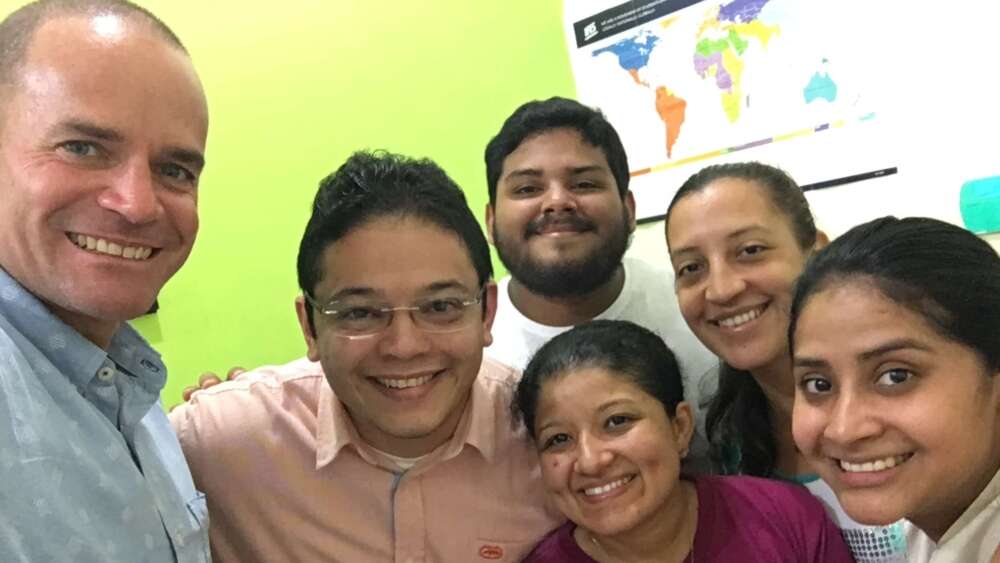As Peter Sholl prepares to don the mantle of International Director of the Church Missionary Society Australia, taking over from Peter Rodgers from the beginning of 2023, he sees his main constraint in achieving “a world that knows Jesus” as people.
“If a hundred people came to us tomorrow and said, ‘We want to be missionaries and we want go here and there,’ it would be kind of wild and crazy to deal with. But the problem at the moment is we have far more opportunities than we have people – it’s not the other way around,” says Sholl.
“So we would love it if more people would come and have conversations with CMS about ‘Are we the right people to go? How could we serve?’ Lots of people are having those conversations and, of course rightly, sometimes the answer is, ‘Well, at the moment, no, that wouldn’t be an appropriate step,’ but we would like to be able to have that conversation with more people.”
For the past few years, the number of CMS missionaries in the world has been steady at around 200. However, under Rodgers’ leadership, the number of host countries has grown to 45, with two more added this year. The range of activities has expanded and the popularity of countries has changed. There has been dramatic growth in work in our region of North Australia and Southeast Asia over the last ten years or so while numbers in Africa have reduced.
“The number of missionaries in Tanzania, for example, has dramatically dropped and yet the need has not,” says Sholl.
“Fifteen years ago in the CMS Prayer Diary, there would’ve been four pages of Tanzania missionaries, and now there’s half a page. Having said that, we now have people in countries that we didn’t have ten or 15 years ago, so that’s great, but we also want to keep sending people to Tanzania!”
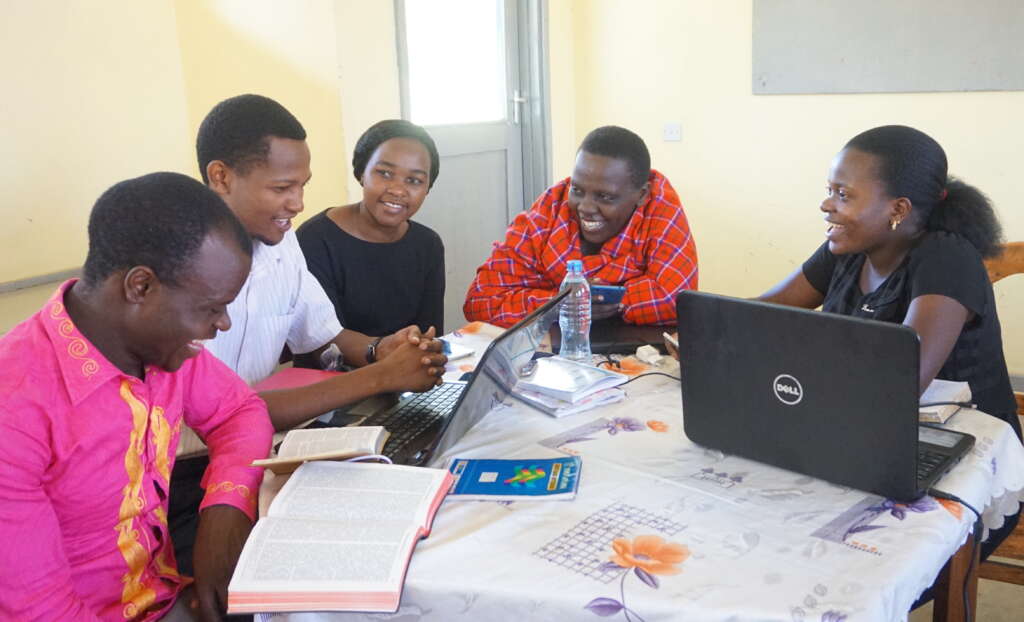
Scripture engagement during a TAFES staff retreat, Tanzania.
An imbalance in supply and demand was also evident in Southeast Asia, where Sholl made a pastoral visit last week as CMS Regional Mission Director, a role he has held since February 2021.
“We need to think about how we can continue to encourage people to go to what are perceived as hard places.” – Peter Sholl
“The Bible College accepts a batch of 50 students every second year, and they have twice as many students as that applying, but they don’t have the faculty,” he says.
“So we need to think about how we can continue to encourage people to go to what are perceived as hard places and train people to be resilient in those hard places. We must keep putting those sorts of stories out there to help people think through that.
“We want to keep recruiting workers for places like Japan where we have a healthy number of workers because there’s great need there and that’s excellent. But we need to be deliberate about giving time, so to speak, to these other places as well.”
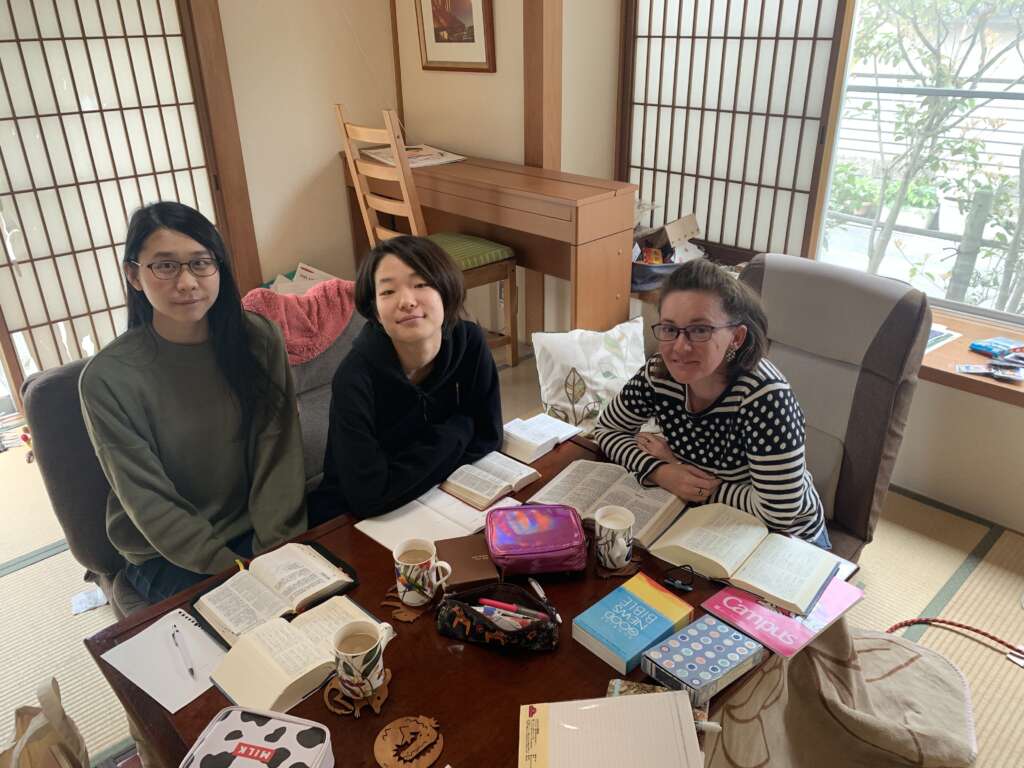
CMS missionary Beck McIntyre studying the Bible with women in Japan.
As Sholl facilitates the development of vision and strategy for the CMS fellowship, he will seek to build strong relationships between CMS and the churches and organisations that missionaries serve with around the world.
“The bread and butter of CMS is fantastic; there’s no need to mess with it. What we’ve been thinking about is what we need to do to grow, not only in our region but beyond that as well, is to expand the number of partners that we have,” he explains.
“All CMS missionaries work with a local partner and we need to expand the number of partners because in some countries where we have people, we only have one partner.
“So if you want to go to Country X, you currently have to go as an English teacher. ‘Well, I don’t want to go as an English teacher; I want to go as an agriculturalist,’ but we don’t have someone to be partnering with that. So part of my job will be facilitating the growth of that number of partners. Then, if someone wants a physiotherapist but we don’t have anybody at the moment but in three years we might, we keep our conversation going so that when a physio comes along, we can go ‘Beauty, here’s someone who can come.’”
With his fluent Spanish developed during the 12 years he and his wife Sarah and three daughters served with CMS in Mexico, Sholl is well placed to negotiate new partnerships in the Spanish-speaking world.
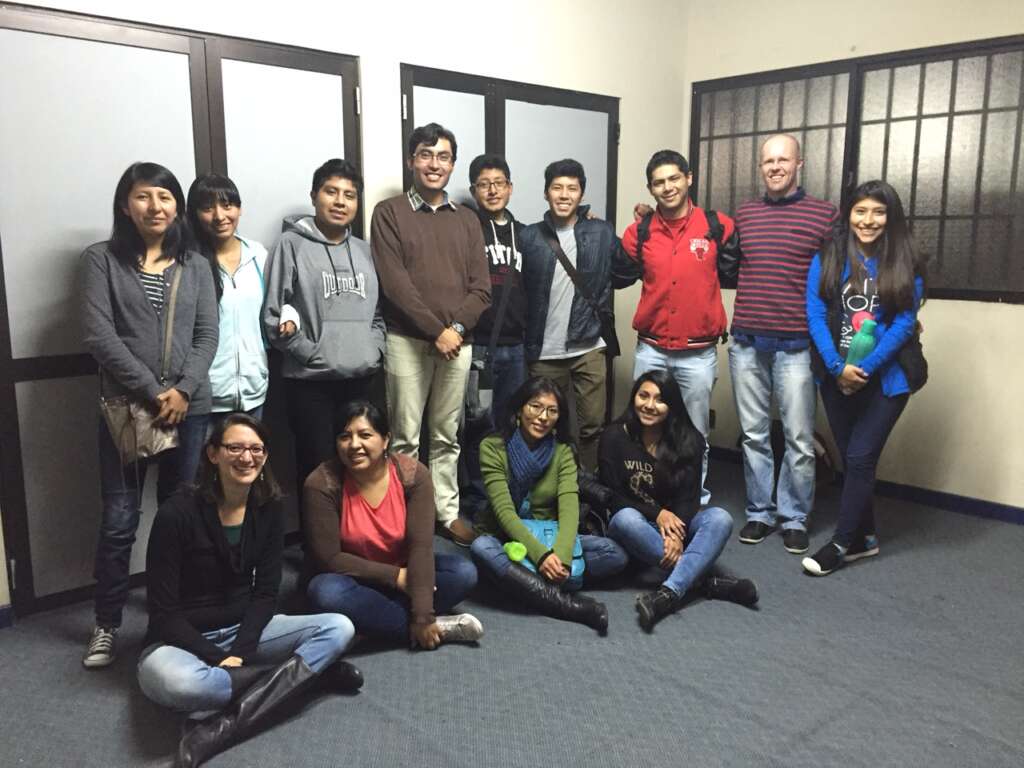
CMS missionaries Adrian and Anita Lovell with a group of MOCLAM students, La Paz, Bolivia.
Under his leadership, more than 1000 people in 15 countries across Latin America and Europe studied Bible courses through MOCLAM, the Spanish translation of the Moore College Preliminary Theological Certificate.
While MOCLAM is the language group closest to Sholl’s heart, other languages groups also work with CMS and the Centre for Global Mission at Moore College to use the PTC material “and we want to continue to grow that.”
“It’s interesting, one of the things we find with MOCLAM, and I’m pretty sure this is the case in other parts of the world as well, is that we have to work hard to get pastors and people who might benefit from it, to start the course. They might not see the value of doing any sort of theological education because it’s not part of their church culture … But once they start and see the value, they then go, ‘Okay, well I need to keep going and what else have you got for me? And I’ve got some friends who could do it as well.’ So once we replace the inertia with momentum, the doors are opening.”
There are “huge numbers of opportunities in Latin America. And that will certainly happen in other language groups as well, so we’re very keen to be equipping people and sending workers to be doing that.”
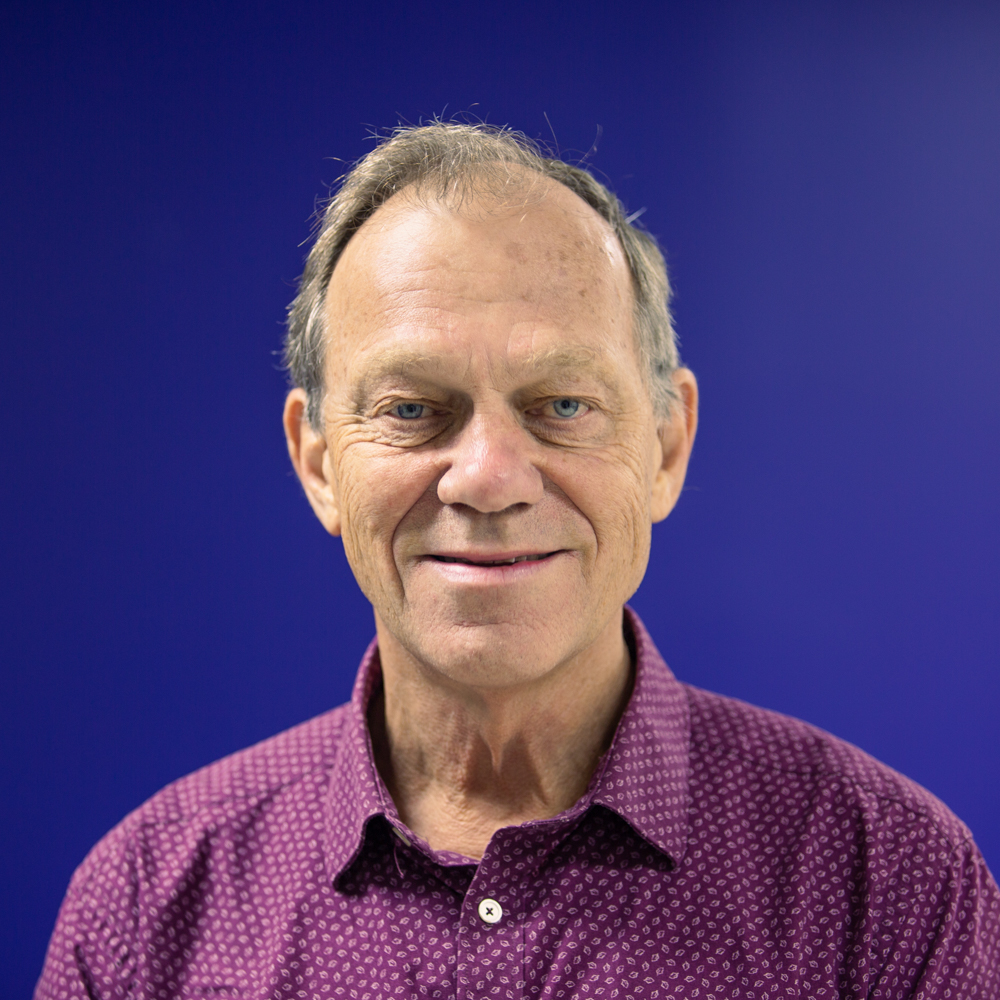
Peter Rodgers served as CMS International Director from December 2011 to December 2022.
While you have to hold Australian citizenship or be a permanent resident to be a CMS missionary, the agency also works to raise up local missionaries overseas through its Ministry Support Fund.
“Many of those recipients are in East Africa. So we’re thinking about how do we use that well and how do we grow?” says Sholl.
“We also have a developing program called Co-mission Partners International. These are people who we will never meet in Australia. They’ve become known to us through a missionary on location. And they’re doing some great ministry and we can support them.
“There’s a second category of that, and they are people who come to Australia to study at Moore College or SMBC [Sydney Missionary and Bible College] or Ridley or other Australian colleges, and they get known in a church or to the state CMS branch and then are going back to their home country. And the branch says, ‘We’d really like to support them.’ So there’s a mechanism for doing that. The number of people doing that is growing as well, which is excellent.
“It is also a joy to be able to support Indigenous workers in Australia through our Co-Mission Partner program, as they work alongside our missionaries in Darwin.”
“The quality of the people who are going as leaders is outstanding.” – Peter Sholl
With four CMS Summer conferences in various states coming up, at which Sholl is going to speak, he has a lot of material to prepare. But, he says, “it’s going be so exciting to have Summer School in person.”
He will be using these conferences to try to match up some of the opportunities CMS has been offering with candidates.
“Summer schools are the gathering points of the people thinking about these questions. I’m giving a couple of the night talks and [at NSW/ACT Summer School in Katoomba] there are 250 youth and children’s leaders in the room, all of who have made significant steps to come here for this week. They’re paying money to lead the children and doing a wonderful job. I’ll say to them, ‘Hey, you guys, have you thought about working cross-culturally?’ And just having those conversations with them. So those opportunities are fantastic. And the quality of the people who are going as leaders is outstanding.
“As you talk to people, as they’re coming to talk to us in initial interviews and things like that, there are many people who will say things like, ‘Oh yeah, Summer School was really important in my thinking process.’
“Interestingly, when I was in Southeast Asia, I was talking to a couple of the students at the Bible college and they were saying that in their country, it is very common to hear people speak about the influence of a Christian English teacher as part of their testimony. So I was thinking I’m going to use that. You may think you’re just going and teaching English, and you might get the odd opportunity here and there, but the number of people for whom that was an opportunity to hear the gospel and be discipled was really outstanding.”
Email This Story
Why not send this to a friend?
